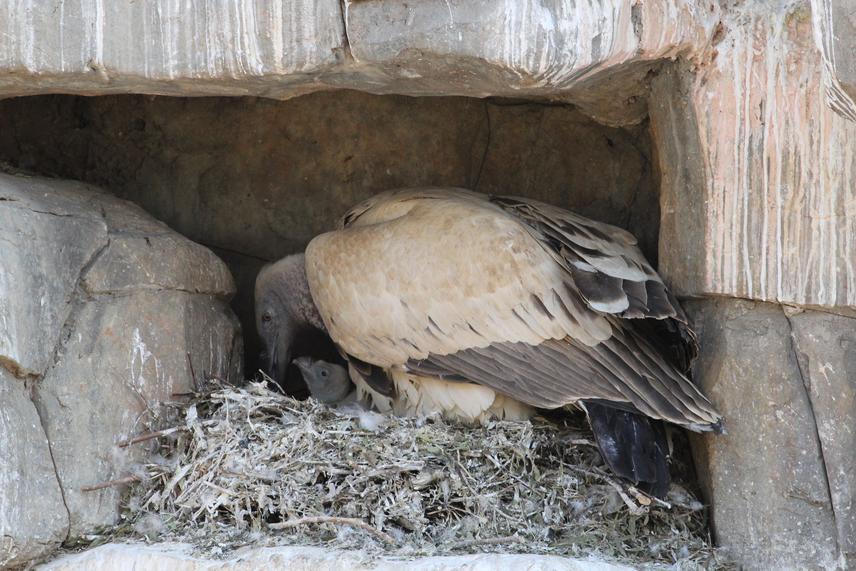Kerri Wolter
Other projects
17 Nov 2014
Cape Vulture Captive Breeding and Release Programme, Magaliesberg Mountains, South Africa
VulPro aims to mitigate the decline of all African vulture species through the breeding of non-releasable individuals. All chicks will be released into the wild to either supplement dwindling populations or reintroduce species into regions where they have recently become extinct.

In response to the ongoing decline of the Cape Vulture and all African vulture species, VulPro started their captive breeding programme with non-releasable Cape Vultures in 2011. In 2015, VulPro initiated a Cape Vulture supplementation programme to release captive bred chicks into the Magaliesberg Mountains, South Africa. The programme aims to re-establish the Roberts’ Farm extinct breeding colony (historically one of three in the region) through releases and feeding site implementation at the extinct colony.
In collaboration with National Zoological Gardens, Pretoria, the first ten chicks were released in February 2015 at VulPro’s breeding facility. All chicks were released with solar-powered GPS tracking units and patagial tags to facilitate visual resightings. One chick disappeared 6 months after release and is presumed dead. All other chicks have integrated into the wild population but have failed to forage outside of VulPro’s vulture restaurant. A new release site is planned to be constructed under the escarpment of the Roberts’ Farm colony. In the future, chicks will be moved to the release site when young and housed for up to three years before release.
Eggs from our 13 Cape Vulture breeding pairs are collected the day they are laid and artificially incubated for 54 days. Chicks are hand raised for up to three weeks before they are returned to their parents for rearing outside of human contact. The Rufford Foundation funds have been instrumental in our ability to effectively incubate and house chicks during the critical period of hand raising.